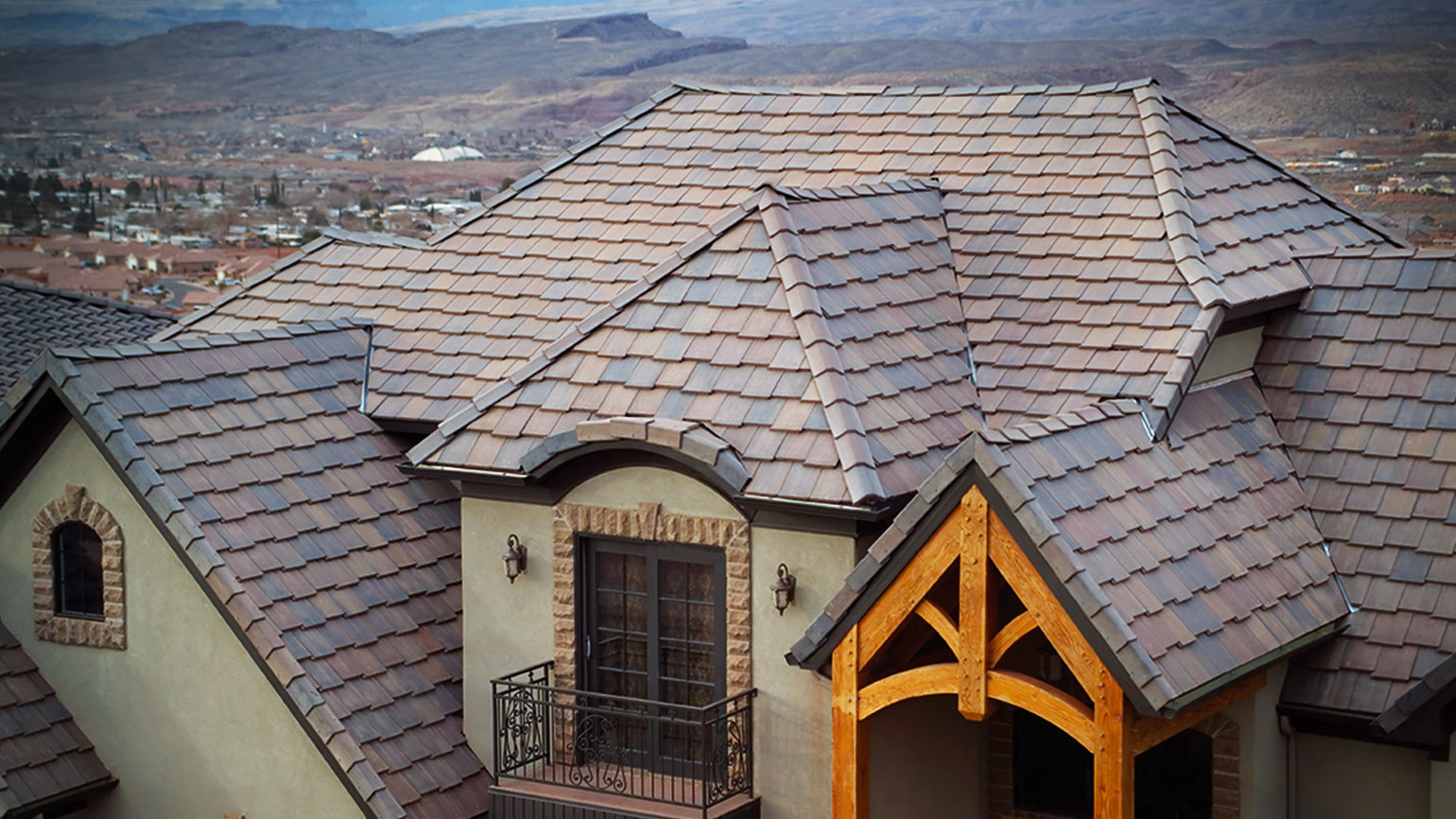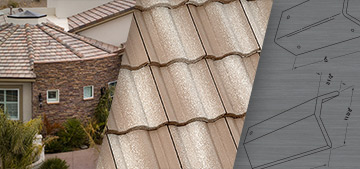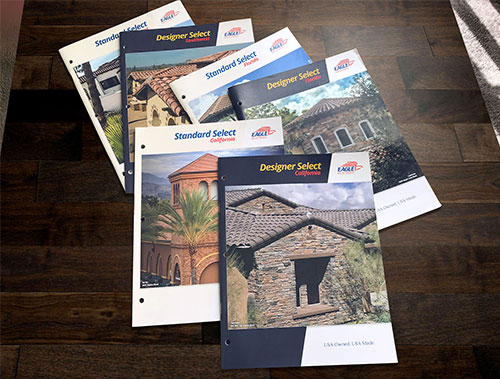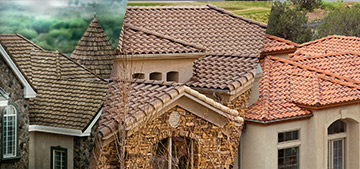Eagle Roofing Products’ concrete roof tile is not only designed to add curb appeal to your home; it is also manufactured with durability in mind and tested to meet the highest of industry standards. Among these tests includes a fire rating test, freeze-thaw test, high wind test and an impact resistance test. What does all of this mean? Let’s find out!
Fire Rating
All of Eagle’s concrete roof tiles meet the highest fire rating possible: Class A. The testing procedure utilizes an apparatus that exposes a roof system to simulated wind conditions and fire sources at temperature of 1400°F ± 50°F. If the tile can withstand the immense heat of the fire and the flames do not spread, it achieves a Class A fire rating.
Freeze-Thaw Rating
In order for a roofing material to be available in areas subject to frequent freeze-thaw cycles, it must meet the necessary requirements. A test is conducted by exposing the product to freezing temperatures of approximately 14°F for 24 hours, and then allowing it to thaw at room temperature for 24 hours. The sample is then placed in a higher temperature of approximately 113°F for 24 hours and then placed at room temperature again for 24 hours. If, after three cycles of freeze-thaw testing, no significant changes are observed, the product is suitable for such climate regions. All of Eagle’s Conventional Weight color-through concrete roof tile (excludes slurry/color bonded tiles) have undergone this testing and adhere to freeze-thaw requirements.
High Wind Test
Installed correctly, Eagle’s concrete roof tile can survive the strongest storms and harshest weather. In fact, each profile has been tested and approved for use in the Miami Dade high velocity hurricane zone, withstanding sustained winds of up to 180mph. This particular test is performed by installing a test wall of tile in front of a wind simulator capable of generating wind speeds of up to 180 miles per hour and testing its response and resistance to the various wind forces and speeds.
Impact Resistance Test
Another test concrete roof tiles must undergo is FM 4473, or the industry standard hail impact resistance test. In this test, ice balls of various diameters are launched at 71.76 miles per hours at a test wall of concrete roof tile.
Class 1: tile can withstand impact from a 1 1/4″ ice ball
Class 2: tile can withstand impact from a 1 1/2″ ice ball
Class 3: tile can withstand impact from a 1 3/4″ ice ball
Class 4: tile can withstand impact from a 2″ ice ball

The test is meant to simulate the impact energy of an actual hailstone, and since the ice balls are generallyharder and denser than hailstones, this test simulates the worst-case hailstone scenario. In order for the product to pass, the tile must not show any evidence of visible cracking or breakage. Eagle roof tile manufactured at the Sumterville, Florida facility has a Class 3 impact resistance rating for all Capistrano tiles and a Class 4 rating for all flat and Malibu tiles and the Phoenix, Arizona facility produces tiles with a Class 3 impact resistance rating for all Capistrano, Malibu and Flat tiles.
With proper installation and routine maintenance, an Eagle Roofing Products concrete tile roof will provide a lifetime of worry-free performance while remaining aesthetically stunning.
To learn more about Eagle Roofing Products, visit www.eagleroofing.com.



